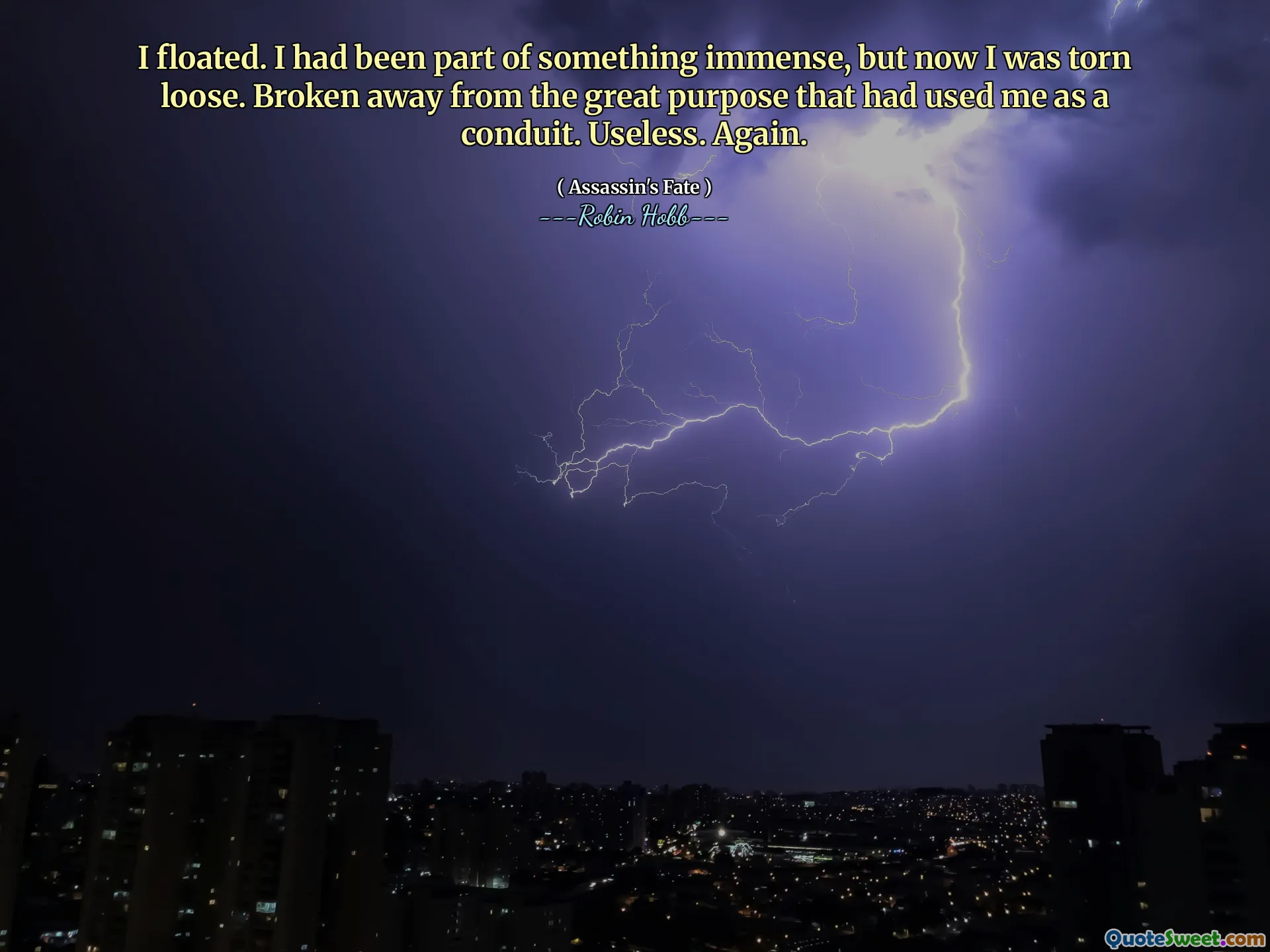
I floated. I had been part of something immense, but now I was torn loose. Broken away from the great purpose that had used me as a conduit. Useless. Again.
This quote captures a profound moment of disconnection and existential reflection. It speaks to the human experience of losing a sense of purpose or belonging after contributing deeply to a cause larger than oneself. The imagery of floating suggests a state of suspension, detachment from the familiar, and vulnerability. Being part of something immense implies a journey or a role that once gave meaning and significance, yet the feeling of being torn free reveals an imminent sense of loss and confusion. The notion of being used as a conduit underscores a feeling of being a vessel for a purpose, only to be discarded or left behind when that purpose is fulfilled or no longer necessary.
The despair conveyed through words like "Useless" echoes a universal fear: that once our contribution is through, our existence might be considered insignificant or devoid of meaning. It invites reflection on how identity and purpose are intertwined, and what remains when those bonds are severed. Such moments can evoke feelings of loneliness, a search for new meaning, or even the pain of obsolescence.
In the context of the story 'Assassin's Fate' by Robin Hobb, this sentiment might resonate with characters grappling with their destinies, sacrifices made for higher causes, and the often painful process of introspection that follows loss or betrayal. It reminds us that identity is fluid, and our sense of purpose can shift, forcing us to confront our own worth and direction beyond external labels or roles. Ultimately, this quote touches on a deep human truth about finding oneself after separation from a source of meaning, and the challenging, sometimes painful, process of rediscovering purpose in a world that moves constantly to detach and redefine us.







